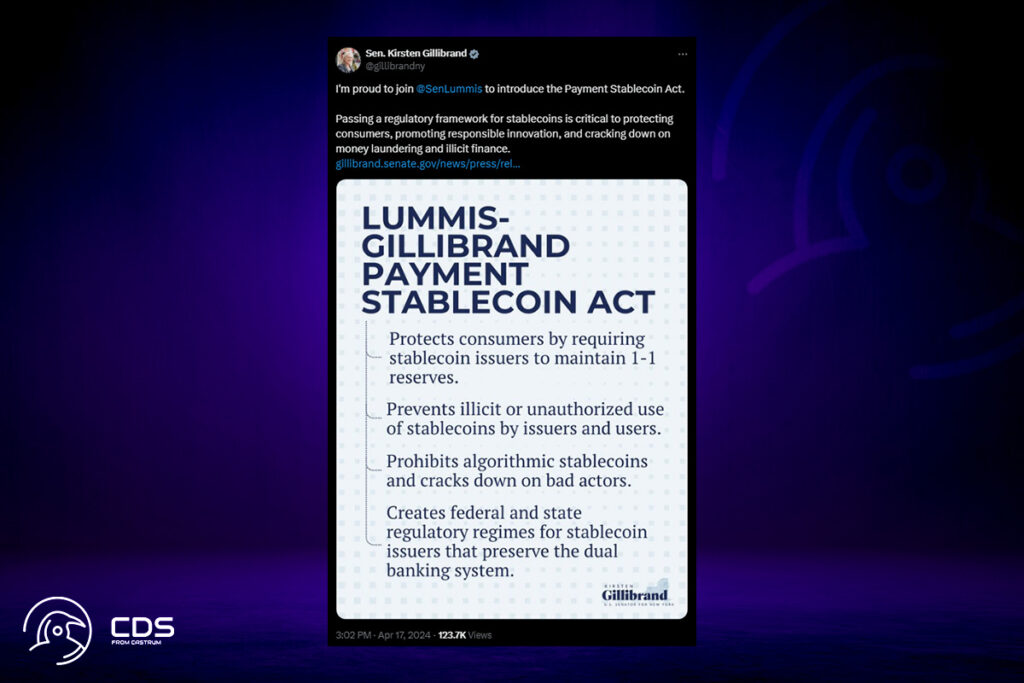Crypto News – Global rating company S&P Global Ratings claims that a new stablecoin-focused law that has been presented to the US Senate may “encourage” US banks to enter the stablecoin industry.
New Stablecoin Bill: Banks May Turn To Stablecoins If Bill Passes, According To S&P Global
According to a research note published by S&P on April 23, the Payment Stablecoin Act‘s proposed amendments may incentivize banks to participate in the issuance of dollar-pegged stablecoins in the United States and could pose a threat to major non-U.S. stablecoin issuers like Tether. The Act was submitted to the Senate on April 17.

In addition to prohibiting unbacked algorithmic stablecoins and forcing stablecoin issuers to maintain one-to-one cash or cash-equivalent reserves, the Lummis-Gillibrand Payment Stablecoin Act proposed a $10 billion issuance cap on non-bank stablecoin businesses.
Assuming the bill is approved, and that relevant banking regulation follows, the new rules may offer banks a competitive advantage by limiting institutions without a banking license to a maximum issuance of $10 billion,
S&P
Approval of the Bill Could Create Trouble for Tether
With a market valuation of $110 billion, Tether is now the largest U.S. dollar-pegged stablecoin issuer on the market. The ratings agency also pointed out that the introduction of a $10 billion issuance to non-bank corporations might be problematic for the company. Because it is issued by a non-US business, Tether—the largest stablecoin by outstanding volume—is not allowed to be used as a payment stablecoin under the proposed bill, according to S&P Global.
This means that U.S. entities couldn’t hold or transact in Tether, which may reduce demand while boosting U.S.-issued stablecoins.
S&P Global
According to S&P, a significant portion of Tether’s transaction activity took place outside of the US and was mainly driven by remittances, retail activities, and transactions in emerging economies.















Leave a comment